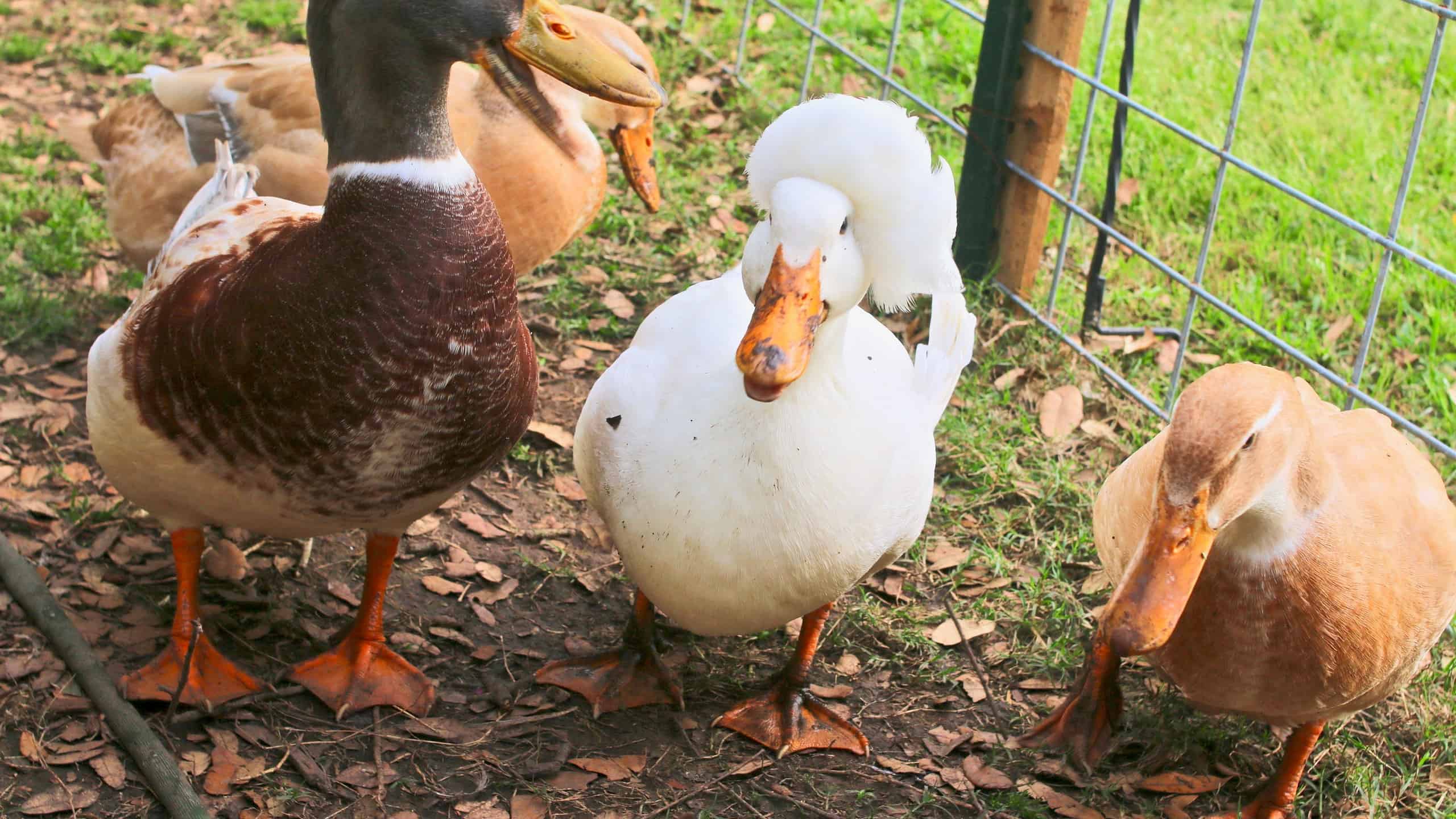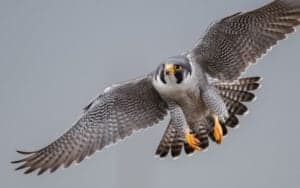Can ducks eat bananas? As a popular fruit enjoyed by humans worldwide, it’s only natural to wonder if these vibrant-yellow treats are suitable for our feathered friends as well. Join us as we delve into the dietary habits and potential benefits or risks associated with feeding bananas to ducks.
Can Ducks Eat Bananas?
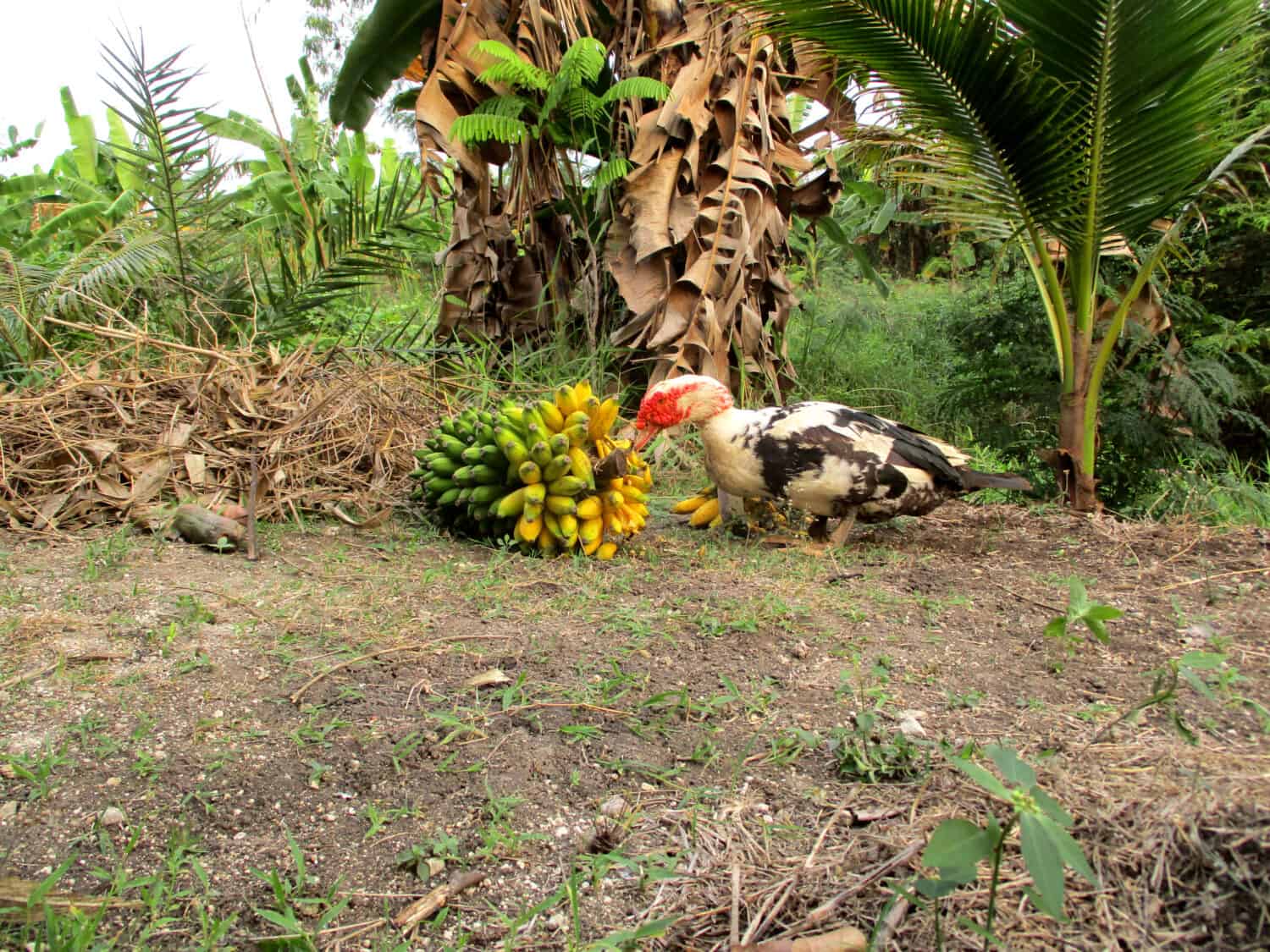
Ducks can eat bananas in small amounts.
©SUPAPORNKH/Shutterstock.com
Yes! You can feed ducks bananas in small amounts. They love fruit. Especially soft, mush fruits. The only part of the banana that ducks do not enjoy eating is the peel. Yuk!
Bananas are a great source of carbohydrates, fiber, and vitamins. They can provide ducks with the energy they need to help them grow. Feeding your pet duck small pieces of banana not only provides nutrients and hydration but also helps keep them entertained.
When feeding bananas to ducks, make sure that you break up the pieces into manageable chunks so that it’s easier for them to eat. It is important not to feed any large chunks as they could choke on it if they try to swallow it whole. Also, remember that ducks should never be overfed, and bananas should only be given in moderation as part of a healthy diet.
Bananas can provide great enrichment for your feathered friends, so long as you feed them safely and in moderation. By feeding your duck small pieces of banana on occasion, you can rest assured knowing that they are getting the nutrition they need while having some fun!
Can Baby Ducks Eat Bananas?
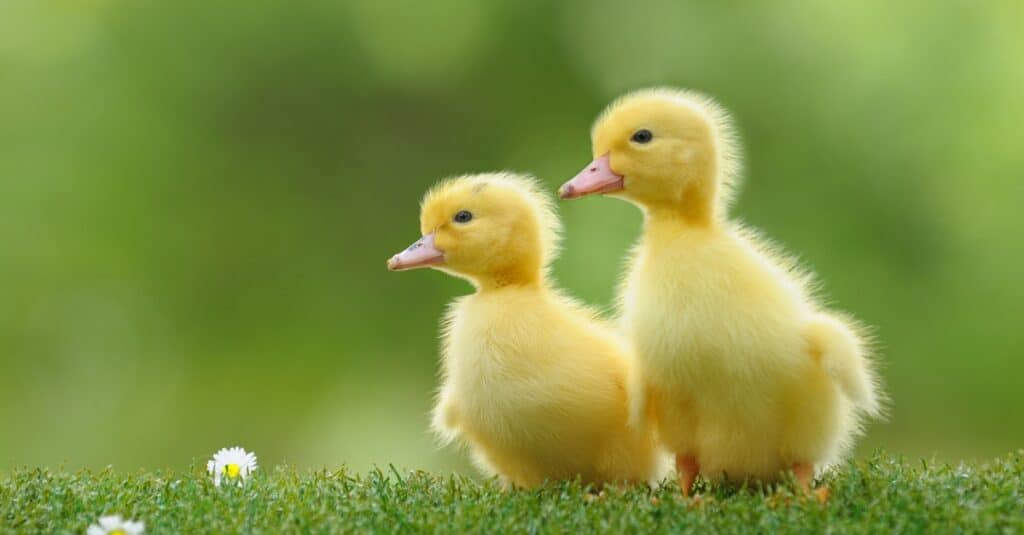
Baby ducks can safely eat very tiny pieces of banana.
©iStock.com/therry
Yes, ducklings can eat bananas. As with any other food you give your duck, it is important to make sure that the banana pieces are small enough for them to comfortably swallow. Baby ducks may not have as much coordination as adult ducks when eating, so be sure to feed them slightly smaller pieces than you would an adult duck. As always, be sure that you provide them with plenty of fresh water.
Common Myths About Feeding Ducks Bananas
One of the most common myths about feeding ducks bananas is that they can cause indigestion or stomach problems. While it’s true that too much of any food can lead to digestive issues, bananas are not known to be a culprit in this regard when given in moderation. As long as you only feed your duck small pieces of banana on occasion, there is no risk for them developing an upset stomach.
Symptoms of Too Much Banana in Ducks
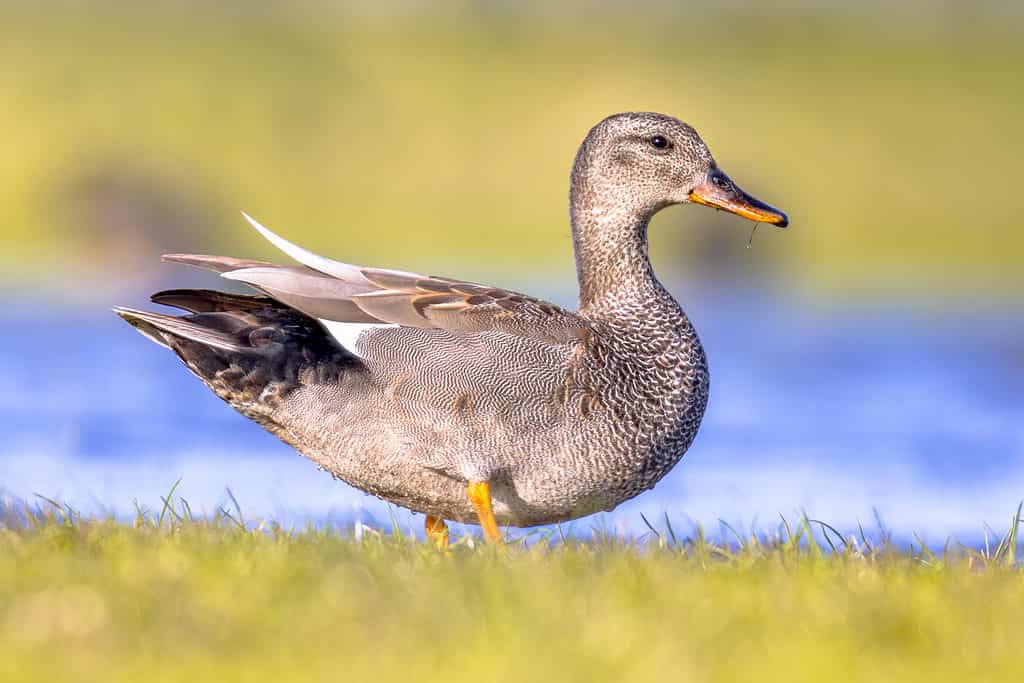
Ducks are wonderful birds to have around.
©Rudmer Zwerver/Shutterstock.com
Taking care of ducks doesn’t require a lot of effort. When feeding them, it is best to give them variety as they are picky eaters. When they are hungry, you will know as they will make loud quacking noises. Generally, ducks should be fed twice a day with two cups of food, though this depends on their age.
There are various types of snacks that can affect the appearance of a duck’s droppings. When these snacks are stopped, the droppings will revert to their normal state. Eating brightly-colored vegetables such as beets, cherries, greens, and tomatoes could temporarily change the color of the duck’s droppings. Lettuce with a high water content could make the droppings watery, which could appear as if the duck has diarrhea. Bananas, rice, and dairy could cause constipation in the duck and make their droppings dry and hard. As constipation is not an ideal state, these treats should be given only on special occasions.
What Type of Bananas Can Ducks Eat?
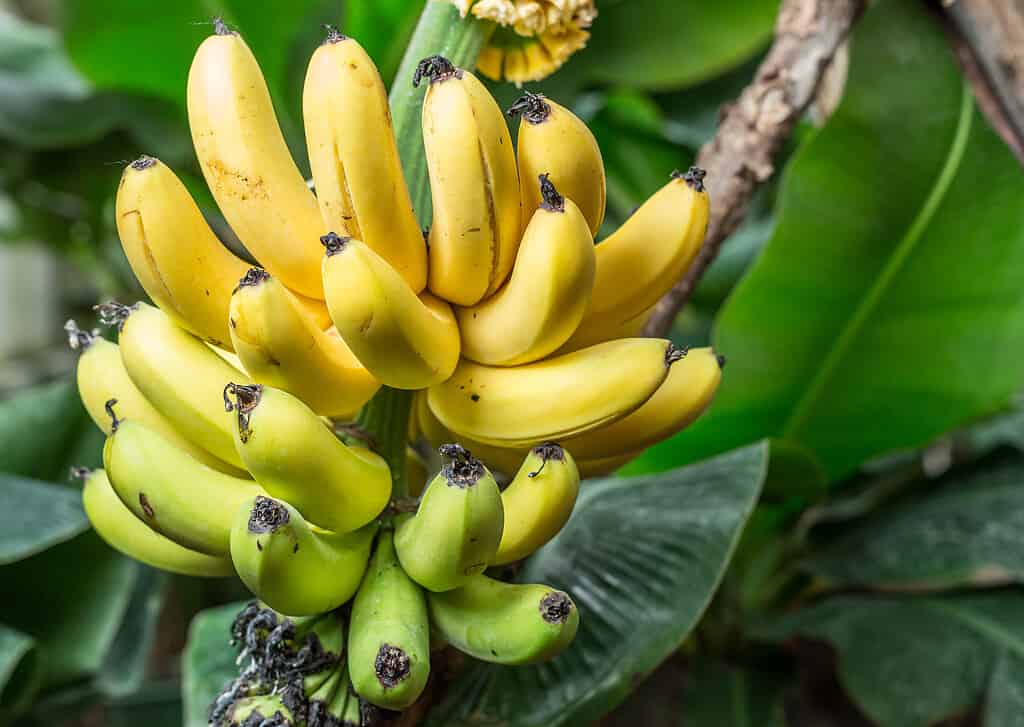
Organic bananas are best for ducks, as they are sensitive to pesticides.
©Valentyn Volkov/Shutterstock.com
Ducks have a delicate digestive system, so it’s best to give them organic produce. All types of bananas, including mini bananas and plantains, are safe and healthy treats for ducks as long as they don’t contain any harmful pesticides.
Though ducks should be fed only small pieces of banana, they can eat them whole if they are small enough. It’s important to note that bananas are high in sugar content, so they shouldn’t be given too often or in large amounts. Bananas should only be given occasionally as a treat and never used as an alternative to a balanced duck food diet.
What Other Fruits and Vegetables Ducks Can Eat
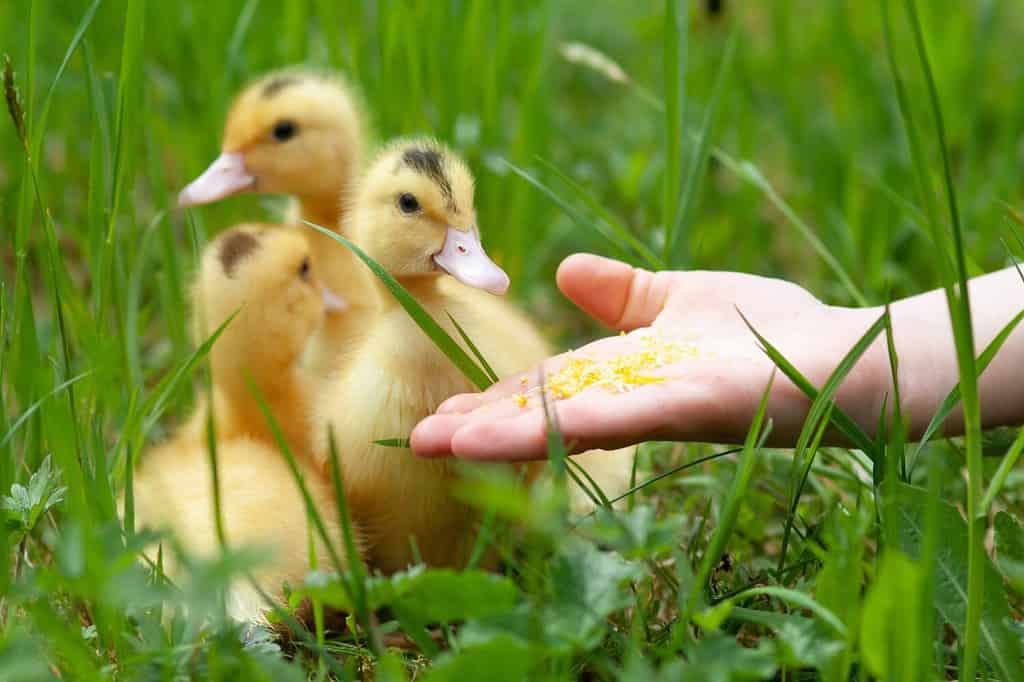
There is a wide variety of vegetables, grains, and fruits that you can feed to your duck.
©Andrii Zastrozhnov/Shutterstock.com
Ducks can also enjoy a variety of other fruits and vegetables. Some of the best ones to try include berries such as blueberries, strawberries, raspberries, blackberries, and cranberries. You can also feed ducks apples (cut into small pieces), sweet corn, and cucumbers that you dice and peel. Ducks also love peas, carrots (diced or cubed), and kale. Other nice duck treats are spinach, squash, and zucchini.
It is important to remember that while ducks may like some of these items more than others, all of them should be served in moderation to help ensure that their diet is balanced and they are getting the necessary vitamins and minerals. Additionally, it’s important to make sure you cook vegetables like carrots or peas before giving them to your ducks, as uncooked veggies can be difficult for them to digest.
Finally, if you have access to fresh live insects such as earthworms or mealworms, these make a great snack for ducks too! Not only do they enjoy eating these critters, but they also provide them with much-needed protein. Just make sure you only feed your ducks live insects that are safe to eat and free from any chemicals or pesticides.
The Benefits of Giving Ducks a Varied Diet
Giving ducks a varied diet can provide a range of health benefits. Ducks need a balanced diet to stay healthy and live a long life. A varied diet can help ducks get all the nutrients and minerals they need to stay healthy. This can include a variety of foods such as insects, worms, water plants, and vegetables.
A varied diet can help ducks develop strong bones and muscles. Foods such as insects and worms are rich in protein and calcium, which can help ducks maintain their strength and energy. In addition, feeding ducks a variety of foods can help ensure they get all the vitamins and minerals needed for their overall well-being.
Additionally, providing a varied diet to ducks can help reduce the risk of developing diseases. Ducks that eat foods with different nutrients are less likely to suffer from illnesses or deficiencies. A balanced diet can also help prevent obesity in ducks, which can lead to a number of health issues.
Giving ducks a varied diet is also important for their mental health. Ducks that are well-fed and have access to a variety of foods are more likely to be content and happy. A varied diet can also provide ducks with the stimulation they need to stay active and alert.
Potential Risks Associated With Feeding Ducks Bananas
Bananas can be a great snack for ducks, but there are some potential health risks to consider before feeding them this fruit. Ducks have sensitive digestive systems, and too much sugar in their diet can cause diarrhea or an upset stomach. Bananas contain more sugar than other fruits, such as apples and grapes, so it’s important to limit the number of bananas you give your duck at any one time.
Too many bananas could also lead to obesity which can put stress on the duck’s joints and muscles. Overfeeding your duck any type of food can also cause it to become lethargic and disinterested in its surroundings, so be sure to keep an eye on how much you are feeding them. Additionally, too many bananas could lead to nutritional imbalances if not balanced out with other types of fruits or vegetables. Ducks need a balanced diet just like humans do, so make sure that they are getting enough variety in their meals!
Toxic Plants For Ducks

Oak, black locust, and cherry trees are all toxic to ducks. So are azaleas.
©Cvandyke/Shutterstock.com
There are hundreds of plants and foods that are toxic to ducks in some way. Many ducks will naturally avoid foods that are not safe. But, if you keep ducks as pets, it is wise to understand which foods are toxic. Here are a few of the most common ones.
Azalea
Azaleas are toxic to ducks. If ingested, they cause tremors, edema, diarrhea, changes in heart rate, seizures, and even death.
Black Locust Trees
The bark, branches, and sprouts of black locusts are all very toxic to ducks. If they eat any of these parts, they will present with symptoms in one or two hours. Symptoms include diarrhea, loss of appetite, weakness, fatigue, paralysis, or death.
Cherry Trees
The pit of one cherry can kill a duck. They will staffer, fall down and die quickly after eating a cherry pit.
Foxglove
Foxglove is poisonous to ducks. The symptoms are cardiac arrhythmia, seizure, and sudden death.
Oak Trees
Oaks, at all stages of their growth, are poisonous to ducks. The symptoms are slow to occur and show up 1-3 days after ingestion. Look out for weakness, lethargy, vomiting, pale mucous discharge, and increased thirst. If untreated severe liver and kidney damage can occur.
Thank you for reading! Have some feedback for us? Contact the AZ Animals editorial team.

